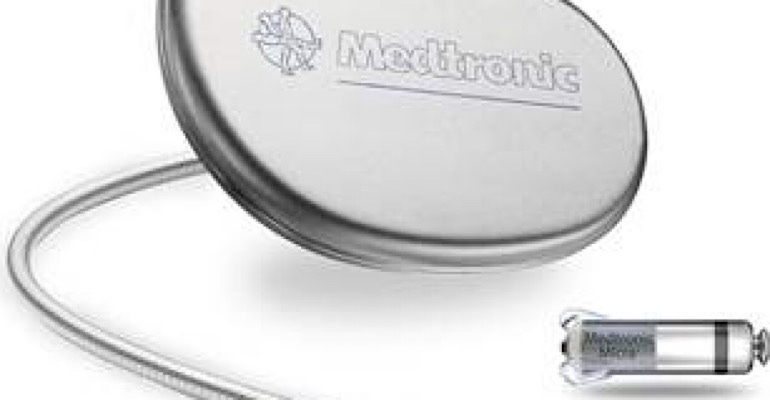The study shines a spotlight on the effectiveness of Medtronic’s Micra leadless pacemaker and was published in Circulation: Arrhythmia and Electrophysiology.
April 13, 2023

A new study is shining a huge spotlight on Medtronic’s Micra leadless pacemaker being used in the pediatric population. The research, published in Circulation: Arrhythmia and Electrophysiology, shows that leadless pacemakers could be safe and effective short-term treatment option for pediatric patients with bradycardia.
The Dublin-based company’s device was successfully implanted in 62 of 63 registry patients (98%) at a mean age of 15±4.1 years and included 20 (32%) patients with congenital heart disease.
During a mean follow-up period of 9.5±5.3 months, there were 10 (16%) complications including one cardiac perforation/pericardial effusion, one nonocclusive femoral venous thrombus, and one retrieval and replacement of TLP due to high thresholds. There were no deaths, TLP infections, or device embolizations, according to study data. Electrical parameters, including capture thresholds, R wave sensing, and pacing impedances, remained stable.
Researchers said, “Initial results from the Pediatric and Congenital Electrophysiology Society TLP registry demonstrated a high level of successful Micra device implants via femoral and internal venous jugular approaches with stable electrical parameters and infrequent major complications. Long-term prospective data are needed to confirm the reproducibility of these initial findings.”
Medtronic won approval for the Micra a little more than seven years ago. The technology was touted as the world’s smallest pacemaker. Its approval also represented a major victory for Medtronic over St. Jude Medical (now a part of Abbott Laboratories) which was seeking approval for the leadless Nanostim pacemaker at the time. St. Jude gained access to the technology when it acquired Nanostim for $123.5 million with additional revenue milestone payments of up to $65 million.
Micra was developed by Medtronic in-house rather than inherited through an acquisition.
About the Author(s)
You May Also Like




